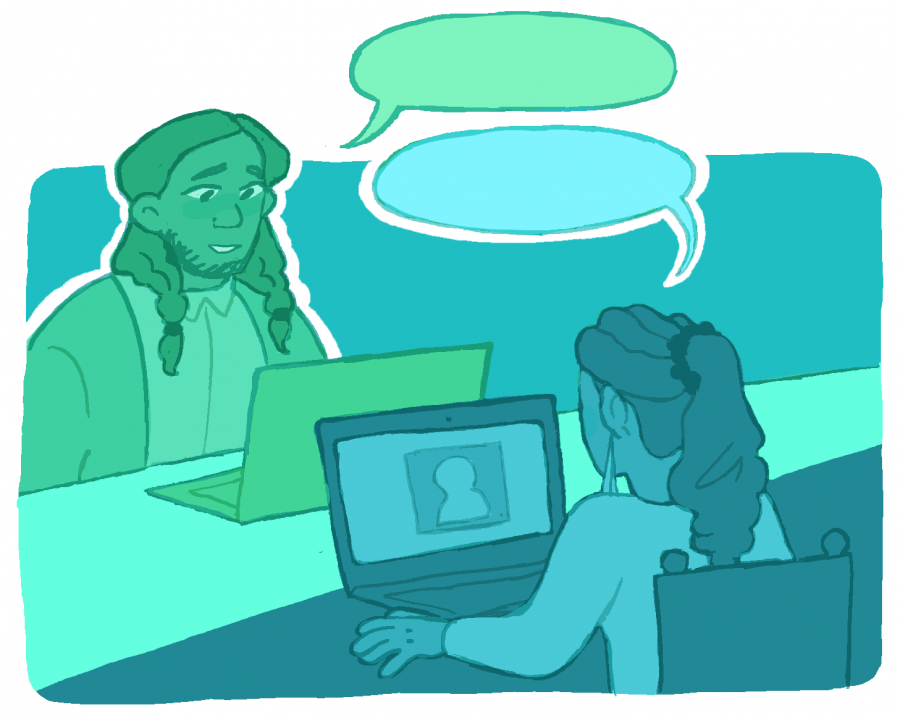Students discuss mental health resources at UT
April 16, 2021
TW: Discussion surrounding mental health. To report concerning behavior or ask for advice, students can call the Behavior Concerns and COVID-19 Advice Line at 512-232-5050. Students can also contact the Counseling and Mental Health Center for support. For after-hours emergencies, students can call the CMHC Crisis Line at (512) 471-2255. National Suicide Prevention Lifeline: 800-273-8255
Student organizations, including Student Government Mental Health Agency and the Student Mental Health Alliance, met Thursday to discuss resources available to students on campus, the impact of the pandemic on student mental health and what the University can do moving forward.
The mental health roundtable was a part of a weeklong mental health promotion week, which consisted of different events to help students struggling with mental health. Kelsey Lammy, mental health promotion and health education coordinator for the Counseling and Mental Health Center, said these events help the Longhorn Wellness Center hear what students need.
Alyssa Martinez, SG mental health agency co-director, asked the people attending what mental health topics or experiences impact students the most. Martinez also said they wanted to hear what resources students are most in need of.
Chad Youmans, executive member of the student mental health alliance, said many students feel like they were robbed of a normal college experience because of the pandemic.
“There are people who are graduating that are upset that they don’t get a normal graduation,” said psychology junior Youmans. “There are freshmen who are upset that they have this as their environment that they’re coming in to get used to. In a year or so, they’ll have to get used to college all over again. And then (there are) students like me, who are sophomores and juniors, who feel like their entire middle chunk of college is gone — all they got was the beginning and the end.”
Caroline Thomas, SG mental health agency co-director, said it will be difficult to transition from the online environment to an in-person environment.
“It’s going to be really hard to readjust to your social and emotional capacity (after) suddenly going from zero to 100 quickly,” neuroscience sophomore Thomas said. “I think figuring out how to best support students in this weird transition phase (is important).”
Management information systems junior Mansi Parikh said she started an organization called Psykhe after finding that many students have reported receiving different levels of support from the CMHC.
“A lot of students, based off my research, have given the perspective that … students (experience) variability in services that are being provided,” Parikh said. “We decided to work toward a solution that would equip students with more long-term care, or just being able to outsource students in a different way than university counseling centers are currently doing, because there’s such a high demand for treatment.”
Youmans said he thinks having something to help introduce or reintroduce students to campus would be helpful for all students.
“It’s not just the freshmen who are coming in having to learn what college is actually like that are going to be affected by the changes,” Youmans said. “Students like me and my peers, who were in school back in the old days and we have to go back to normal class, are going to have to readjust, and it’s going to be kind of overwhelming.”
On Friday, multiple student organizations are holding a mental health sit-in to advocate for an increase in funding to the CMHC. Other demands include free regular counseling services for at least 12 weeks of the semester, the CMHC partnering with outside clinics, broader discretion in prescribing medication and a calm-down center for students to decompress.
Multiple organizations and students are making these demands after students started sharing their negative experiences with locating mental health resources and treatment during their time at the University.












